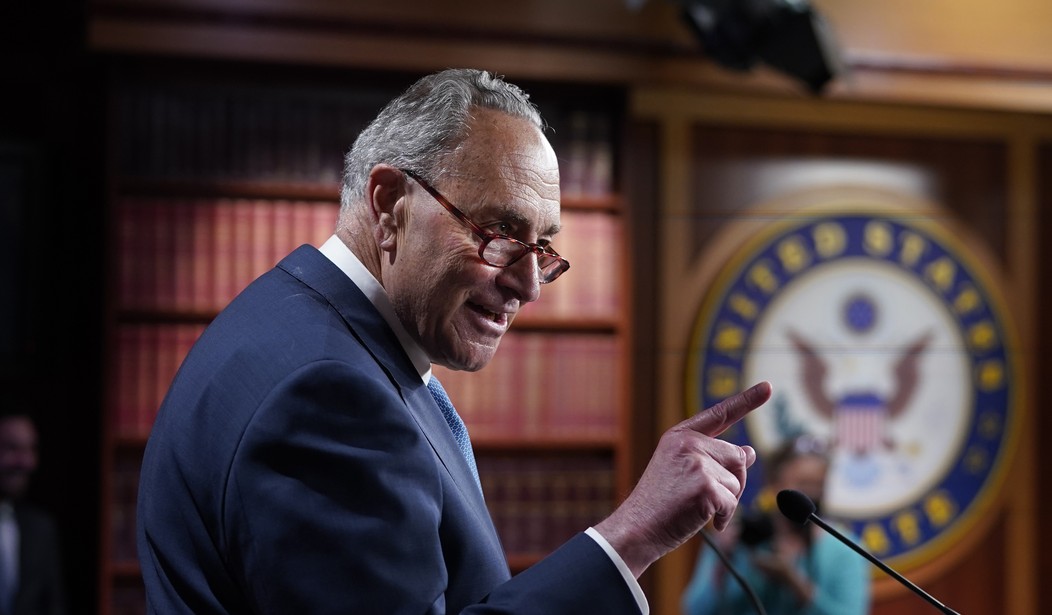The bipartisan infrastructure bill survived its first hurdle in the Senate when 12 Republicans voted to proceed with debate on the bill, giving the centrists — and Joe Biden — a big win.
The bill still isn’t completely written and several Republicans have indicated they want various amendments included in the bill — any of which could blow up the entire process. But Senate radicals appear to be satisfied — for the moment. After the infrastructure bill is passed, Congress will turn its attention to a $3.5 trillion budget bill that Democrats will look to pass via the reconciliation process.
But for the moment, everything is daisies and daffodils in the Senate.
Ahead of the vote, Schumer pleaded for full party support to advance the bill, which many progressives have reservations about, at a lunch for all 50 Democrats, according to Senate Majority Whip Dick Durbin. Afterward, Schumer professed confidence that the Senate was finally ready to move forward.
Wednesday’s breakthrough comes a month after negotiators originally said they had a deal on infrastructure. In the end, it took weeks to finalize the details between a bipartisan group of 10 senators and the White House, and even on the day of the vote the bill was still being written.
The bill will cost about $550 billion in “new” spending with another $750 billion in spending that had already been authorized — mostly from unspent pandemic relief funds.
According to a detailed summary of the bill obtained by POLITICO, the bill uses $205 billion in unused coronavirus aid money as its main financing mechanism. Other major revenue sources include $53 billion in unused unemployment benefits, $49 billion for delaying a drug rebate rule and even $56 billion in expected economic growth. A key question is whether Republicans will be able to swallow those as legitimate funding sources after demanding the bill be fully paid for.
Schumer in the end kept all 50 members of the Democratic caucus together, including progressives who had reservations about the deal.
“There’s a discussion we need to have about infrastructure. So I think it’s time,” said Sen. Elizabeth Warren (D-Mass.). “There are things I like and there are things I really don’t like.”
Warren and her cadre of radicals wanted hundreds of billions of dollars more earmarked for “human infrastructure” — a made-up, pretend phrase that looks good in left-wing media but bears absolutely no relationship to anything real. “Human infrastructure” is a sexier way of saying “social spending” and nothing more.
Recommended: Vaccine Passport First Step? Biden, Who Doubted the Vaccine in 2020, Will Mandate It for All Federal Employees
The original proposal from the White House on infrastructure was to spend a total of $2.6 trillion on roads, bridges, water, sewer, and other “hard” infrastructure projects as well as a gaggle of “soft infrastructure” schemes like Medicare expansion, child care for all, and climate change initiatives. What isn’t in the bipartisan bill will make another appearance in the $3.5 trillion budget bill Biden wants to pass via reconciliation.
There are still some problems with the “pay for” side of the ledger, especially the inclusion of fantasyland items like “economic growth” above what would normally be expected. Republicans finally got the Democrats to drop the ludicrous notion that “enhanced tax collection” by the IRS would bring in hundreds of billions of dollars in revenue. But the bill still relies too much on smoke and mirrors for funding.
But as the adage goes, it’s close enough for government work.










